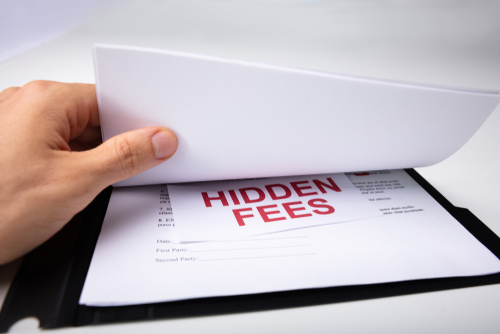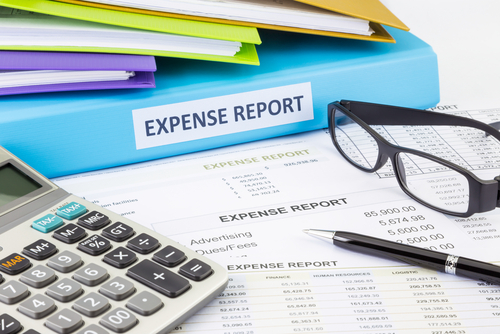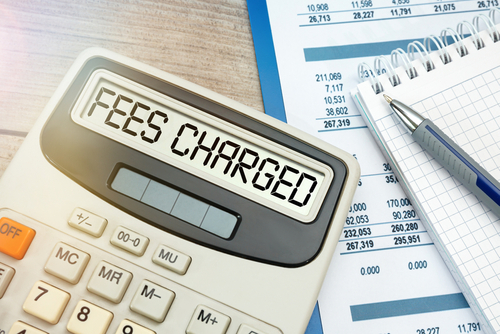
When you own a rental property business, there are several expenses you must account for. Some of the most common rental property costs include insurance, taxes, and maintenance. However, sometimes landlords encounter unexpected rental property costs that negatively affect profits. So how can you avoid running into hidden rental property costs? Here’s what you need to know about budgeting for success.
How Can You Get Started With a Rental Business?
Starting a rental business is not a small investment. After all, once you purchase a rental property, the investment isn’t over–you become a landlord. Landlords have several expenses to consider weekly, monthly, and yearly. For example, if you’re just getting started with a rental business, you need to consider start-up costs, mortgage loan payments, maintenance, repairs, and more.
Before starting a rental property business, it’s important to plan out all the expenses you may encounter. That said, some expenses are inevitable, like taxes and loan payments. However, some expenses aren’t necessarily guaranteed. For example, maintenance and repairs will cost money, but how much often depends on what type of repairs are necessary.
Either way, landlords must prepare for all expenses, expected and unexpected. But first, it’s important to know what costs to account for. So keep reading to learn about some of the most common rental property costs and some unexpected expenses to watch for.
Common Rental Property Costs
Every landlord knows that you need to plan for several expenses before you can earn income from a rental property. After all, your rental property investment won’t pay off unless you’re paying for operating expenses. So here are some of the top rental property costs all landlords should plan on for each property.

- Monthly Mortgage
- Insurance
- Closing Costs
- HOA Fees
- Utilities (water, electric, sewer)
- Property Management
- Licensing and Inspections
- Property Taxes
- Marketing Costs
- Emergency Repairs
- Tenant Screening
Although it seems like this is a long list of rental property costs to plan for, there’s more. These are some of the basics that all landlords must prepare for if they’re operating a rental business. However, surprise expenses can pop up every now and again. Here are some of the most unexpected fees and costs that landlords forget to account for.
5 Unexpected Fees and Expenses to Watch For
Most landlords know what it’s like to encounter unexpected fees or expenses for their rental business. However, even if you plan out your main expenses, you could be above your budget if you forget some of the following costs.
- Maintenance Issues
- Vacancies
- Bad Tenants
- Legal Fees
- No Professional Connections
Maintenance Issues
Repairs and maintenance problems can happen in any rental property. Maintenance is standard in most rental properties, whether an unexpected leak or a recurring sink clog. However, it doesn’t hurt to save enough to pay for more than your estimate when planning for maintenance costs. After all, you don’t want to be caught in a situation that could hurt profits.
Vacancies
Although long-term, quality tenants are the ultimate goal, all rental property owners need to account for vacancies. Vacancies are a tricky rental property cost that can add up if a landlord forgets to budget for it. After all, if you expect to earn monthly income from a rental property but it’s suddenly vacant, it’s essential to pivot and plan for vacancy expenses.
Bad Tenants

Bad tenants can cost you a lot of money. After all, if tenants cause a lot of damage to your rental property, it can cost more than their security deposit is worth. That’s why it’s important for all landlords to thoroughly screen tenants before signing a rental contract. When you screen your tenants, you can ask them about their previous rental history, check with references, and run a background check.
Legal Fees
Legal or professional fees are another hidden expense that landlords seem to forget about. Whether you need to hire an accountant to help during tax time, a lawyer to help with an eviction, or another legal situation, fees are typically involved. Legal fees can slowly creep up on you and start to add up if you forget to include them in your budget.
No Strong Connections
Having strong professional connections can make a huge difference in the world of real estate. After all, when you have other business professionals to get advice from, they can help your business grow. That said, if you don’t have a network of strong professional connections, it can make it more difficult to find help for your business. For example, a strong network of people may include:
- A rental property management group
- Real estate agent
- Accountant
- Attorney
- Maintenance contractors
Hiring the wrong people can be one of the worst hidden costs. Instead, find the right professionals for the job and create a strong network for your rental business.
How to Create a Realistic Budget For Expenses
As you can see, there are several rental property costs that landlords must budget for. But how can you budget for expenses if you aren’t sure about the exact costs? After all, it’s nearly impossible to estimate an exact dollar amount that you’ll spend each month if you’re accounting for emergency costs.
Here’s what you can do to create a realistic budget for rental property expenses.
- Make a List of Expenses
- Research Potential Costs
- Put It All Together to Create a Budget

Make a List of Expenses
You can’t create a realistic budget if you don’t know what you have to pay for. So first, landlords should research potential expenses they’ll likely encounter each month. For example, some monthly expenses for landlords may include maintenance costs, mortgage payments, property management fees, utilities, etc. Additionally, if you pay employees to work for your business, it’s crucial to account for those expenses as well.
Research Potential Costs
Once you have a realistic list of expenses for each rental property, research the potential costs for each service. For example, if you have a rental property management team in Baltimore, include management fees in your monthly budget. Additionally, account for regular maintenance costs and emergency maintenance costs. After all, you don’t want to encounter an emergency that you didn’t account for. That said, when you think about budgeting, consider overestimating each expense.
Put It All Together to Create a Budget
Once you have a list of expenses and potential costs of each service, it’s time to put together a budget. One of the best ways landlords can set themselves up for financial success is by underestimating income and overestimating costs.
As you look through your list of expenses and potential rental property costs, overestimate how much each service will cost. Then, when planning your income for the month, underestimate by a little bit. You’ll realize you profited more than you accounted for at the end of the period.
Need Help Running Your Rental Business?

Landlords with one or more rental properties know what it’s like to account for income and expenses each month. That said, rental property costs for each property can be hard to account for. If you’re experiencing difficulty managing costs at each retinal property, get help from the professionals.
The experts at Bay Property Management Group are qualified and trained to help your rental business succeed. We offer comprehensive rental management services in Baltimore, Philadelphia, Northern Virginia, Washington DC, and surrounding counties. Contact us today if you’re looking for a full-service management team.
